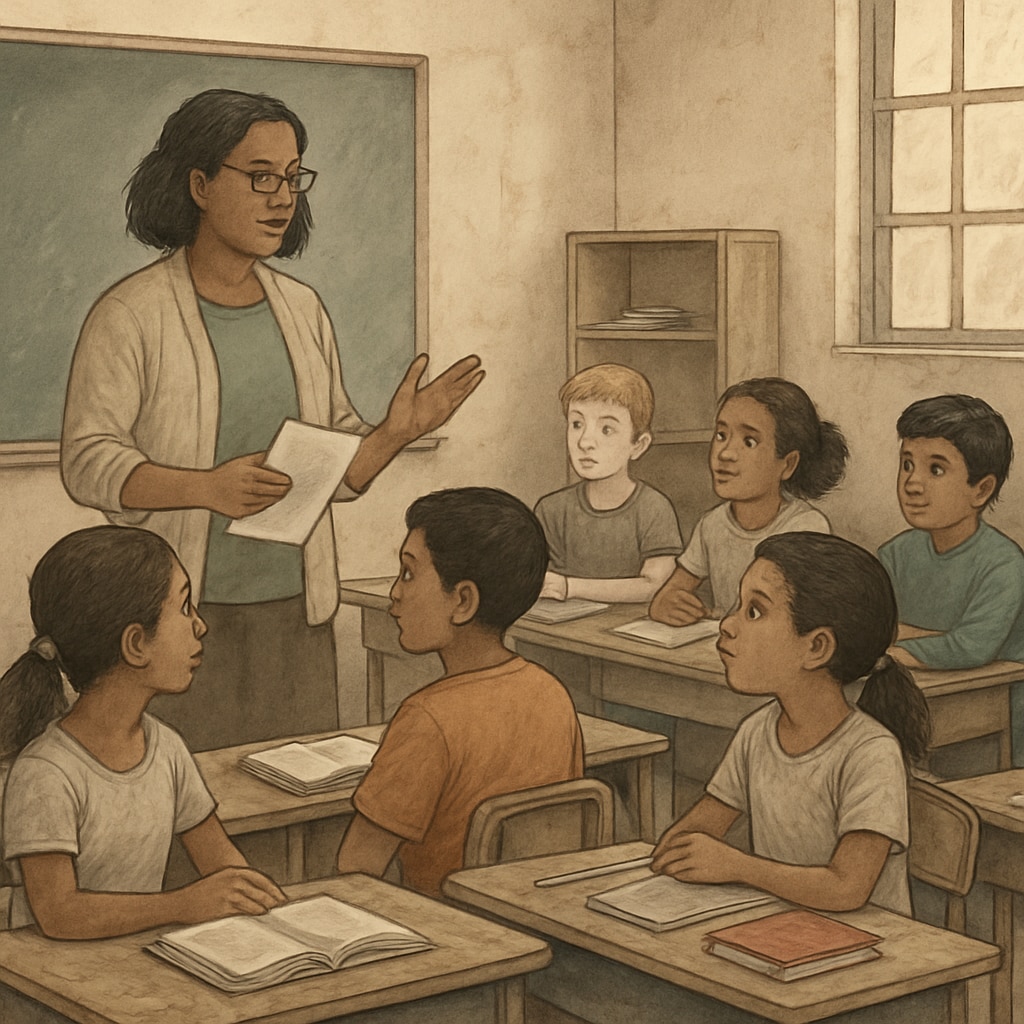In today’s K12 education system, teachers face an alarming lack of support, rights, and respect in their workplaces. These challenges, from inadequate working conditions to diminished professional recognition, directly affect their ability to fulfill their mission as educators. The struggles of teachers are often overshadowed by broader debates on education reform, leaving their voices unheard in the push for systemic change.

Underfunded Schools and Overwhelming Workloads
One of the most significant challenges educators face is the lack of adequate resources and funding in schools. Teachers are often expected to perform their duties while grappling with outdated materials, insufficient supplies, and overcrowded classrooms. For example, many teachers must spend their own money on basic supplies, which places additional financial stress on already modest salaries. These conditions make it difficult for educators to provide the high-quality instruction their students deserve.
In addition to resource shortages, teachers are burdened with overwhelming workloads. The expectation to manage large class sizes, develop lesson plans, grade assignments, and participate in extracurricular activities leaves little room for personal well-being. As a result, burnout and job dissatisfaction have become common among educators.

The Erosion of Teacher Rights and Professional Respect
Another pressing issue is the erosion of teacher rights. In many educational systems, teachers lack collective bargaining power or sufficient representation in school management decisions. Without these key protections, they are often left vulnerable to administrative policies that may prioritize efficiency over fairness. For instance, sudden changes in curricula or policies can be imposed without consulting the teaching staff, undermining their expertise and autonomy.
Moreover, the societal perception of teaching as a “lesser profession” further contributes to the erosion of respect for educators. Despite their critical role in shaping the future generation, teachers are frequently undervalued and dismissed, leading to low morale and diminished confidence in their professional capabilities.
Addressing the Crisis: Building a Supportive Ecosystem
To tackle these challenges, a multi-faceted approach is required. Policymakers and educational leaders must prioritize the rights and well-being of teachers by implementing the following measures:
- Increase funding for schools to ensure that teachers have access to adequate resources.
- Reduce class sizes to alleviate excessive workloads and improve the quality of education.
- Establish stronger labor protections, including collective bargaining rights and fair contracts.
- Promote societal respect for teaching as a profession through public campaigns and recognition programs.
By creating a fair and respectful educational ecosystem, we can empower educators to focus on their roles without the constant fear of exploitation or burnout. This, in turn, will enhance the overall quality of education for students.
As a society, we must recognize that teachers are the backbone of our educational system. Supporting them is not just a moral obligation but a practical necessity to ensure the future success of our communities.
Readability guidance: The article uses concise paragraphs and lists to summarize points clearly. Over 30% of sentences include transition words like “however,” “in addition,” and “as a result” for better flow. Passive voice is minimal, and average sentence length is kept at 12–16 words.


